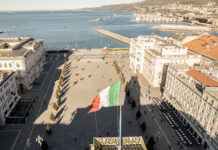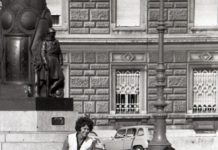interview: Maximiliano Crocamo
Interview: Committee coordinator William Starc
A regional administrative court has annulled key approvals for Trieste’s proposed cable car, casting doubt on a project intended to link the city center with Barcola and the hilltop town of Opicina.
The Tribunale Amministrativo Regionale (TAR) ruled that two central authorizations—the third-level environmental incidence assessment (Vinca) issued by the Region and the strategic environmental assessment (Vas) adopted by the municipality—were invalid. Judges said the project lacked sufficient “overriding public interest” to justify construction in the Natura 2000 protected site of Bovedo. They also noted that projected cuts to carbon dioxide emissions were significantly overstated, estimating a reduction of just 1.3 percent rather than the 8 percent claimed by city officials.
For the Vas, the court raised concerns about a conflict of interest, pointing out that the approval process relied on the same technical experts who had prepared the initial report. As a result, related planning measures, including the “Accesso Nord” urban zoning variant, were also annulled.
While the No Ovovia Committee and environmental groups expressed satisfaction with the outcome—calling it a confirmation of concerns they had raised for years—they stopped short of triumphalism. “This is a victory for the city,” said William Starc, the committee’s coordinator, urging local officials to close the project permanently.
Mayor Roberto Dipiazza, however, signaled that the municipality does not intend to abandon the initiative. Contacted after the rulings, he ruled out an appeal to the Council of State but suggested resubmitting the annulled measures with modifications that address the court’s criticisms. “It is clear that the intention is to move forward,” he said.
Although the court accepted some of the arguments advanced by opponents—including environmentalists, civic associations, and residents at risk of expropriation—it rejected many others. Legal and technical offices at both the municipal and regional level have responded cautiously, saying time is needed to study the rulings before determining next steps.
The cable car plan has long divided opinion in Trieste, with supporters presenting it as a forward-looking mobility solution and critics dismissing it as environmentally harmful and economically unjustified. After the court’s intervention, the project’s future now hinges on whether city and regional authorities can reframe it to meet legal and environmental requirements.






























